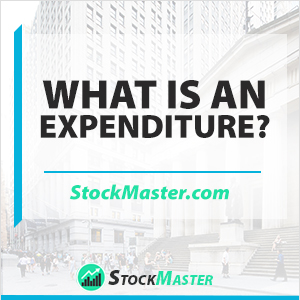 What is an Expenditure?
What is an Expenditure?
Definition: In business, expenditure refers to funds that businesses or individuals use to acquire new assets, to reduce or do away with liabilities, or to improve the existing assets. So, if a business pays cash or uses credit to replenish its stock then the business will record the transaction as expenditure.
Indeed, expenditure is a popular term when talking about budgets and budgeting. In a budget, there is always contention between expenditures against the money available for spending. Usually, a balanced budget is the one where the money available for spending is sufficient to cover the cost of the items on the budget.
Consider this example. You have taken one year to save some money to spend on a vacation to the Bahamas. In the budget for the trip, you have put together the items on which you will spend money. For example, you know that you will need to pay for a hotel room, for airfare to the Island, and probably for car rental among many other things. Each individual item on which you spend money is expenditure. Certainly, you will add up the expenditures to find out if the money you saved can cover the costs.
Types of Expenditures
The type of expenditure is determined by the period that the business has to wait before realizing the benefit of the expenditure.
Capital Expenditures
Capital expenditure (or CapEx for short) is incurred when a business acquires an asset whose benefits are long term. Usually, long-term benefits are realized for more than one year since the acquisition of the asset. Such an asset is called a non-current asset. Non-current assets generate more revenues for more than one year since acquisition. Additionally, businesses require a lot of money to acquire such assets and that is why it is common for businesses to rely on loans or other sources of money to fund such acquisitions.
Nonetheless, due to the sheer size of capital expenditures, businesses do not deduct them fully in one financial year. Instead, the deduction is done in bits every financial year for as long the asset remains useful. However, the business will depreciate the asset every financial year until it is no longer useful.
Revenue Expenditures
Unlike CapEx, revenue expenditure is incurred when money is spent to acquire an asset that generates revenue within the current financial year. Therefore, such an asset is called a current asset. Typically, revenue expenditures are smaller compared to CapEx. For example, a business might want to acquire more contract workers to expedite its production process. Usually, the business expects that the increased production will result in more revenue at the end of that particular financial year because of increased output. Since revenue expenditures are usually small, businesses rely on receipts to keep records.
Ultimately, the major difference between CapEx and revenue expenditure is the term of benefits. Usually, businesses record the expenses in the same financial year that they were incurred. As such, this makes it possible for businesses to anticipate profits or loss for that particular financial year.
Expenditure vs Expense
From expenditure, there is an expense. Although people sometimes use these terms interchangeably, they are not similar in definition. Expenditure represents the money spent on an item at that particular time. For example, when you paid for your iPhone at the electronics shop, you gave out the money once you were given the phone. Alternatively, if an agricultural company buys a tractor worth $10,000 whose useful life is estimated to be four years, then the money spent is capital expenditure.
On the contrary, an expense is a record of money spent over a certain period of time. An expense is an offset to revenues that a business has earned over a given accounting period. If the same agricultural company depreciates the tractor by $2,500 annually, then the tractor would have an annual depreciation expense of $2,500.
